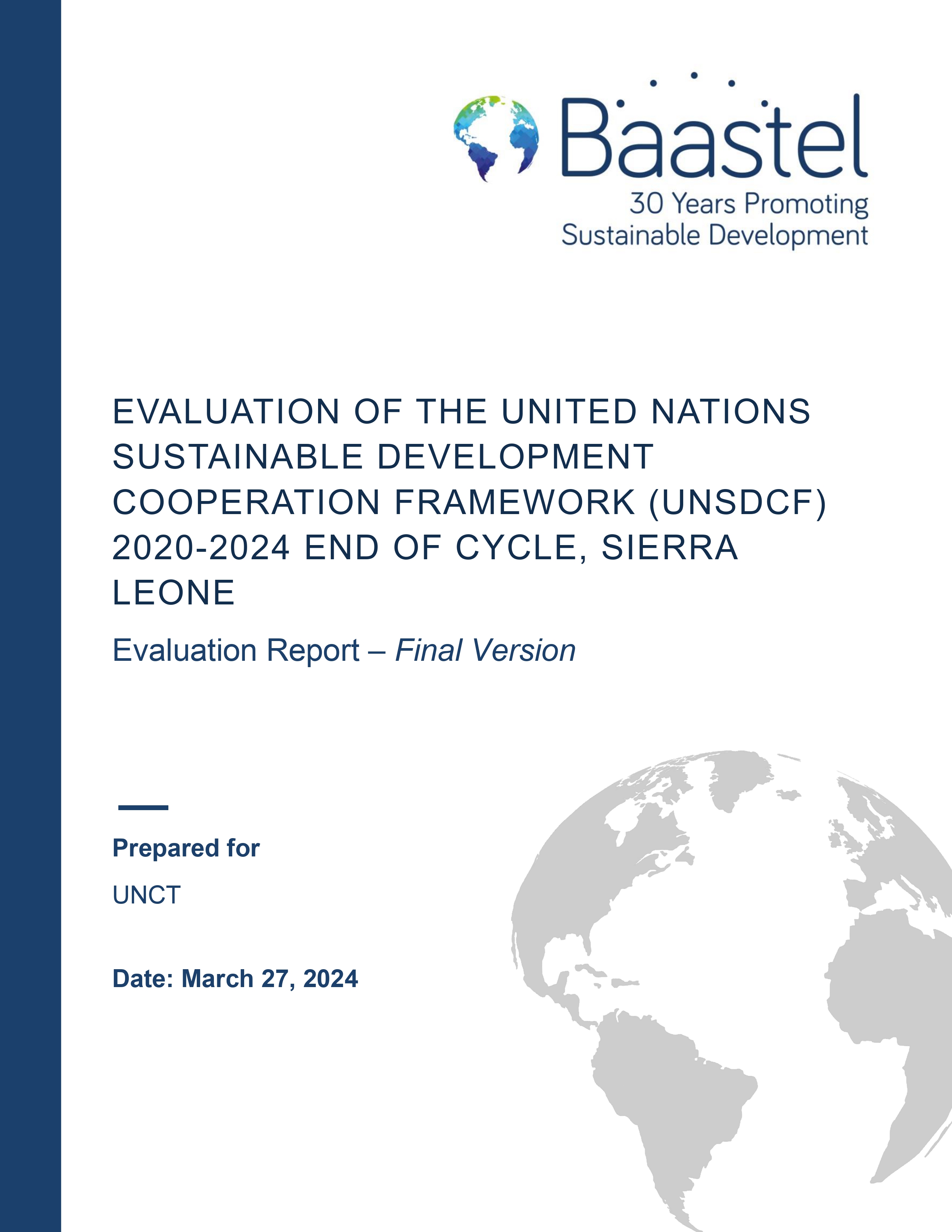Institution Background
The Development Coordination Office (DCO) provides managerial and oversight functions for the Resident Coordinator system. It is based in New York, with regional teams in Addis Ababa, Bangkok, Beirut, Istanbul and Panama, supporting 130 Resident Coordinators covering 162 countries and territories.
Evaluation Function
Evaluation Function
In the Resident Coordinators’ System (RCS/DCO), independent evaluation of UNSDCF is critical to (i) Ensure accountability of UN actions to stakeholders; (ii) Provide a transparent and participatory platform for learning and dialogue with stakeholders regarding national progress, challenges and opportunities, and best approaches in the context of the system-wide national response; and (iii) Deliver clear recommendations to support the next CF cycle and ensure accelerated progress towards the SDGs.
The Evaluation unit at DCO has the responsibility to:
- Ensure independent, quality and useful evaluations of the United Nations Development Cooperation Frameworks (UNSDCF)
- Provide targeted RCOs and UNCTs with guidance on initiating and implementing the CF evaluation; provides quality assurance to CF evaluations
- Share the extent of technical support that countries may benefit from throughout the process
- Provide the opportunity for sharing lessons learned and experiences of CF evaluations from countries that have already conducted an evaluation.
Scope of UNSDCF evaluations
The independent evaluation of the CF should be completed in the penultimate year of the CF. There should be linkages with individual and joint UN agency-level evaluations, as well as Voluntary National Reviews to maximize complementarities and synergies. The evaluation should be conducted in an inclusive manner and promote national ownership. Evaluation design, procurement and processes should build on and strengthen national evaluation capacities, including through the use of national evaluators to the extent possible. The CF evaluation should further utilize data from relevant evaluations and/or review processes as part of the evidence base to assess progress against outcomes.
Independence
Terms of references of UNSDCF evaluations are advertised for open competition to identify the team of evaluators, comprised of external evaluators who work in full independence from the evaluation commissioners.
Stakeholders’ involvement
The UNSDCF evaluations are conducted using a participatory and inclusive approach, involving a wide range of partners and stakeholders, ensuring the key groups are involved and that everyone involved has access to the same information on an equal basis.
The evaluation team carries out a stakeholder mapping to identify the direct and indirect partners of the CF, specifically targeting United Nations organizations and representatives of the national government. Stakeholders mapping includes civil society organizations (CSOs), the private sector, other multilateral and bilateral cooperation organizations and, above all, the beneficiaries of the program. CSOs are selected in line with the UN Disability Inclusion Strategy, it is particularly important to include Organizations of Persons with Disabilities in your outreach to civil society organizations, as they are often forgotten and represent an important stakeholder group).
Quality assurance
The data collected are subjected to a rigorous quality assurance process for validation purposes, using a variety of tools including triangulation of information sources and permanent exchange with the CF implementation entities at Country Office level.
Use of evaluation
UNSDCF evaluation findings, conclusions and recommendations are used to (i) Ensure accountability of UN actions to stakeholders; (ii) Provide a transparent and participatory platform for learning and dialogue with stakeholders regarding national progress, challenges and opportunities, and best approaches in the context of the system-wide national response; and (iii) Deliver clear recommendations to support the next CF cycle and ensure accelerated progress towards the SDGs.



